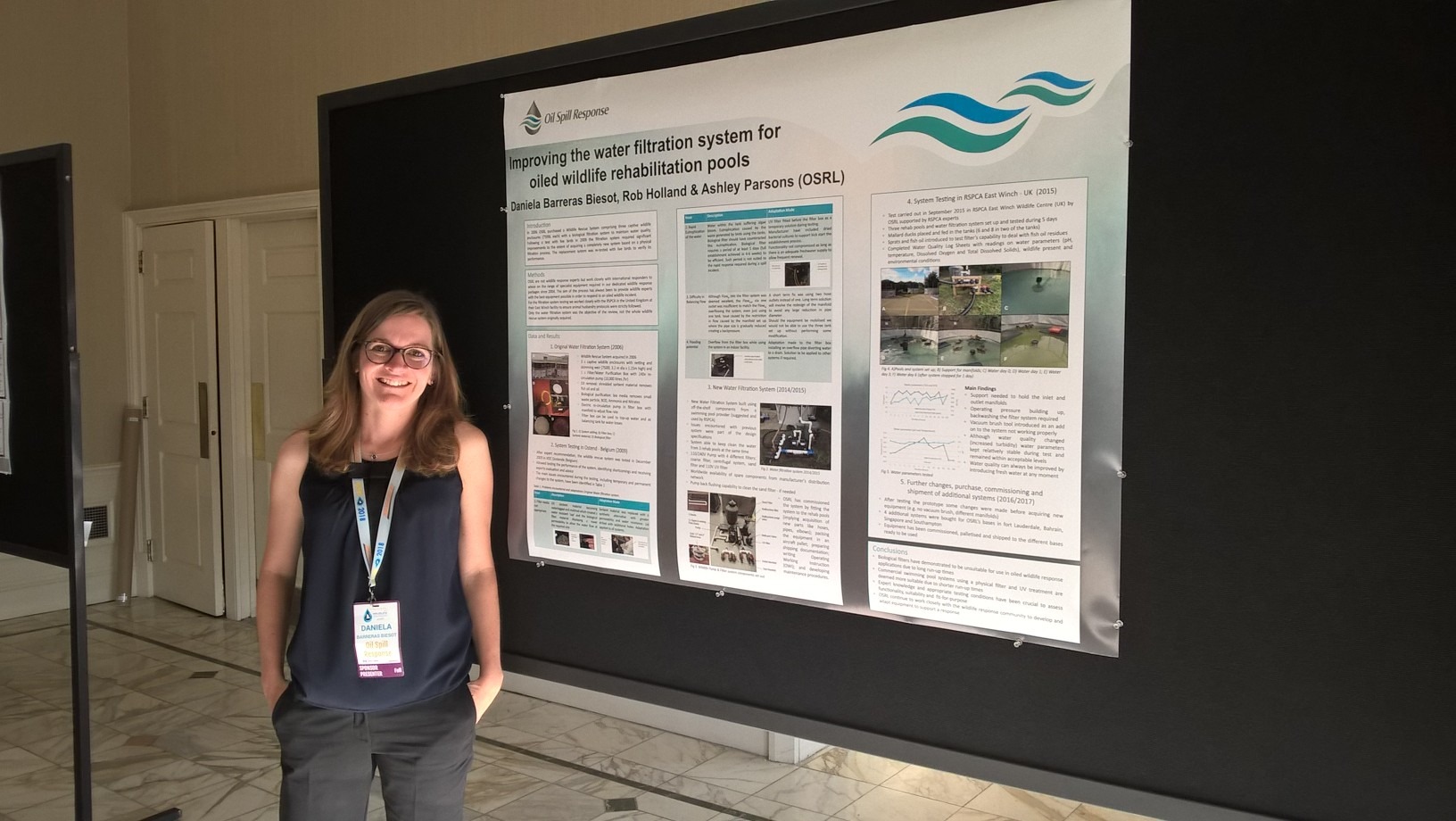
13th International Effects of Oil on Wildlife Conference - Baltimore 7th -10th May
I was excited to be given the opportunity to attend the EOW Conference this year and present a paper explaining the improvements in our wildlife equipment and the water filtration systems.
I attended five full days of very active workshops, numerous talks, well organized poster sessions, interesting discussions and roundtables and lots of people sharing their wildlife knowledge and professional experiences. The amazing last day's strolling banquet in the National Aquarium was a highlight for me!
The workshops covered the following topics:
Workshop 1: Wildlife Response Planning, standards for Industry preparedness.
- Main Challenges and Roadblocks for Oiled Wildlife Response (OWR) Organizations are: the lack of understanding of wildlife response components, the lack of commitment of industry, lack of funding, OWR Plans developed by individuals with lack of expertise in OWR, the high diversity of species and habitats makes planning and response unique, wildlife sits at the bottom of the priorities list, the infrequent wildlife impact leads to lack of experience and the poor clarity in legislative requirements, among others.
- Importance of establishing a hotline in the first 24-48h.
- The keys for a successful OWR are quite similar to our OSR priorities: planning and preparedness, drills and exercises, training local resources, a rapid wildlife response activation and the use of deterrence operations in the first 48h.
Workshop 2: Oiled wildlife response 201 -Intermediate response preparedness
- In the USA, the wildlife response gets fully embedded in the ICS organization which clearly supports the 'what' needs to be done, by whom, where, who needs to be communicated and how to proceed.
- High complexity of the Wildlife Branch (roles and responsibilities)
- We reviewed all the ICS structure in a spill response and it was interesting to see how wildlife has an interaction with each of the different ICS positions: ops section chief, safety officer, air operations branch director, on-water and shore-side recovery groups, SCAT teams, resources request, finance, etc.
Conference Talks
- Oiled Wildlife Response in the Mexico / US maritime border region: Mexus Plan 2017.
- Use of SCAT processes to assess the degree of oiling in beavers' lodges.
- Importance of the new GPG on Tiered Response and the importance of having Wildlife in the TPR wheel.
- Importance of the inclusion of Wildlife in the SIMA process. Wildlife included in the comparative matrix as a resource impacted.
- Lots of Environmental Sensitivity Mapping developed in Canada (East Coast) by Environment and Climate Change Canada (ECCC).
- Many online tools exist for responder management. Volunteer management systems, time clock apps, online training platforms, feedback collection and analysis.
- Presentation of modular/easy to build and store wildlife cages made of PVC pipes and netting.
- Amazing presentation about managing compassion, fatigue and burnout in oiled wildlife. Importance of emotional safety.
- Issues in the USA with cross-country/cross-state responses: permits to work of responders, transboundary points of animal collection/transportation/rehab/release.
- Brazil obliges oil and gas producers by legislation to have plans to capture and stabilize animals in the offshore environment.
- The Netherlands are pioneers in Europe investing in OWR, developing OWR plans, training, exercises and reviewing the whole wildlife strategy.
CLOSING PLENARY SESSION
Several final discussions took place during the closing session. One of the most encouraging discussions emphasised much has improved in the last 10 years:
- Working networks have improved
- A wider range of species is now considered
- There is an increased level of knowledge
- Standard Operating Procedures have been developed
- Developments of best practice documents and Good Practice Guides
- Research developed by academia
- Introductions of new technologies appeared (GPS, GIS, ESI Maps, phone/tablet Apps)
- Development of tools to support decision making (ICS)
- Wildlife included in Spill exercises (not as much as desirable)
- More young people involved
- Broader industry willing to collaborate
During the session Rich Davi presented, on behalf of Rob Holland and OSRL, on global oil industry support to global oiled wildlife response preparedness – what do industry want and need?






